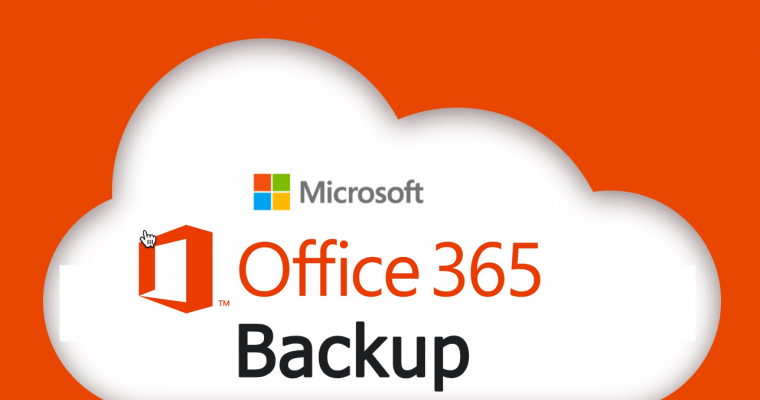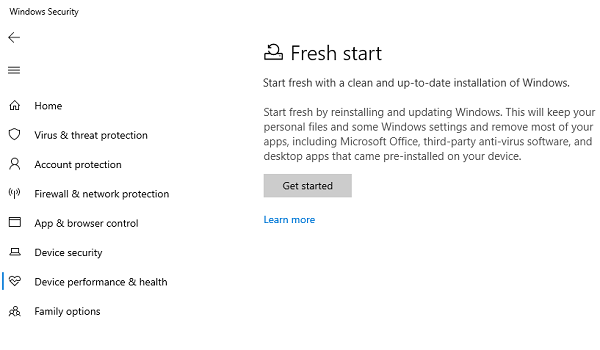“Should I backup Office 365?” you may ask. The importance of backing up Office 365 can not be overestimated. And not without a reason. Losing business-critical data will shatter a company’s reputation and financial sustainability in no time. The bigger the company the higher the damage will be caused due to data loss related to cybersecurity breaches or insider threats.
Office 365 has certain backup and recovery functionality. The most obvious ways are recovering from the Deleted Items folder or eDiscovery hold. However, the native backup and recovery options are limited. That’s why using third-party backup software is
The top 7 reasons for using backup software are:
- Microsoft Recommends Using Third-party Backup Services
- Reducing The Impact of Human Error
- Time-saving Approach
- Improved Data Security
- Avoiding Inconvenience of Recovery via eDiscovery
- Easier Data Migration
- Advanced Ransomware Protection
You can take a deeper dive into the “whys” and the “hows” of cloud backup with SpinOne O365 solutions and learn more about backing up Office 365.
So, let’s take a look at these seven reasons to back up your Office 365 data.
Microsoft Recommends Using Third-party Backup Services
Office 365 is an outstanding productivity tool used in business environments all around the world. Protecting O365 data is business-critical. Backups give additional protection to your O365 data. Let’s take a look at the extract from Microsoft Services Agreement:
“We strive to keep the Services up and running; however, all online services suffer occasional disruptions and outages, and Microsoft is not liable for any disruption or loss you may suffer as a result. In the event of an outage, you may not be able to retrieve Your Content or Data that you’ve stored. We recommend that you regularly backup Your Content and Data that you store on the Services or store using Third-Party Apps and Services.”
According to Microsoft, using backup services is recommended. It can be safely assumed that having a backup is a good idea. And there are many reasons why.
Reducing The Impact of Human Error
The company’s data security may be challenged from within. Users may delete important data accidentally or intentionally, overwrite data if the storage space runs out, or lose original data during the collaboration process. In any case, human error will lead to a disruption of a company’s workflow.
Avoiding human error by training and educating employees may not be a 100% effective solution. Even a trained employee may make a mistake, and that’s totally natural. Backups will ensure that data is always recoverable, even if an important file was about to be lost due to a human error.
Time-saving Approach
Office 365 has a functionality of preserving Outlook and OneDrive items, yet it takes a lot of time to use it. Third-party backups are often automated and require minimal human interference to maintain. Usually, backup software creates a new backup version several times a day automatically. To backup and restore items manually, you’ll need just a few clicks.
Improved Data Security
In-built Office 365 recovery functionality relies on the data, stored in the Office 365 cloud. In a nutshell, it means that original and backup data are vulnerable to the same threats. For example, a ransomware attack can infect not only your Office 365 files but the backup as well.
Contrary to Office 365 native backup options, third-party backup solutions follow a 3-2-1 backup strategy. Implementing this strategy means storing three copies of your data, two backup copies on different media, and one stored off-site. This strategy helps to diversify the potential risks of storing O365 backup data in the same cloud as the original data.
Avoiding Inconvenience of Recovery via eDiscovery
For an admin, it is possible to recover deleted Outlook files via eDiscovery. However, using this option may be somewhat inconvenient and time-consuming. For example, due to limitations of the search function. Moreover, some items can be unrecoverable. eDiscovery is not aimed towards preserving and recovering OneDrive data.
Backups give a faster and more convenient way of retrieving Outlook and OneDrive files in case of an emergency.
Easier Data Migration
After an employee leaves a company, all critical data and access should be transferred to a new account to avoid paying for an inactive Office 365 account. Apart from saving on account maintenance, the security of data and elimination of potential insider threats are important reasons behind data migration. That’s why data migration is a common process.
However, there is another reason for data migration: switching the company’s operations from G Suite to Office 365. For example, this may happen if two companies are merging. Avoiding data loss during migration may be a serious challenge even for an experienced admin. That’s why understanding how to perform migration from G Suite to Office 365 correctly is important to ensure that no information is lost during the migration process. Though Office 365 and G Suite share many similarities, there are significant differences between these two SaaS solutions as well. Migration is a process that can not be performed without taking them into account.
Advanced Ransomware Protection
Ransomware becomes a significant threat to Office 365. Using ransomware, hackers can attack big organizations and encrypt vital information. After that, hackers demand significant sums as a ransom.
With cloud environments, ransomware authors try to damage the whole system, not just one account. Usually, ransomware sneaks into the system through phishing emails. Hackers exploit OneDrive synchronization, and ransomware-infected files get in the whole Office 365 network even if just one user has clicked the wrong link and downloaded malicious files or attachment. Long story short, ransomware can spread through the whole network and infect other accounts.
Backups will help to restore Office 365 data to its original form and recover from the ransomware attack. Backup, usually, preserves several data versions. That’s why you can recover older versions of protected data even if the newer ones have been encrypted.
To sum up, using third-party backup software is a reliable way to secure your Office 365 data from emergencies like cyber attacks and accidental deletion. Besides, backups for Office 365 often have a much more user-friendly interface and customization, that’s why they can be a helping hand in an intense business environment.








Add Comment